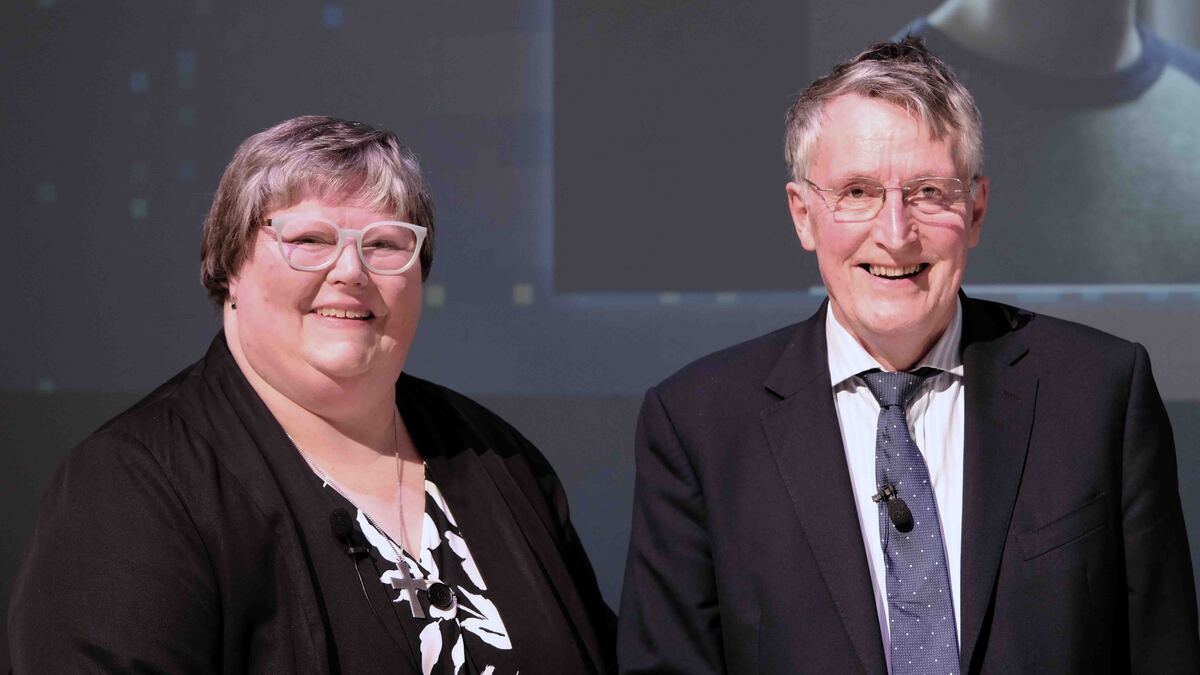Published:

With the recent and successful implantation of a wireless brain chip into a human by Elon Musk’s Neuralink company, the boundary between science fiction and reality is rapidly fading.
This milestone achievement has brought into fresh focus the question around what the future holds for humanity and what role technology will play.
It was a theme explored recently during the Heriot-Watt University Chaplaincy Annual Public Lecture by the renowned scholar, doctor, author and research scientist, Professor John Wyatt.
Professor Wyatt discussed the fascinating potential for technology to augment fundamental human behaviours and enhance physical capabilities. From envisioning the creation of super-soldiers to brain computer interfaces, moral enhancement technology, digital avatars and radical life extension, Professor Wyatt shared his expert insight during his lecture, titled Transhumanism – Making Better Humans.
Professor Wyatt said: “Science fiction narratives about human enhancement have been as common as those about AI, and in fact fantasy myths about human enhancement have circulated for many centuries. But at last the technology is catching up with the fantasy.
“What do these developments tell us about what it means to be human? And what ethical principles should guide the use of these powerful technologies?”
Professor Wyatt is Emeritus Professor of Neonatal Paediatrics, Ethics and Perinatology at UCL. He has a longstanding interest in ethical and philosophical dilemmas raised by advances in biomedical, medical and digital technologies.
He adds: “I have always been fascinated by science fiction narratives of super-intelligent machines and I find it astonishing, interesting and alarming all at the same time that in some sense the science fiction tropes seem to be coming true.
“I find it fascinating that rapid technological advances are causing us to go back to age-old questions and ask them with new urgency. What does it mean to be human and what is the future of our species? If the machines can function better than us at most things then what are human beings for? Should we enhance our bodies and merge with computers? And what kind of world do we want to create for the future? These are not purely scientific and technical questions, they raise fundamental philosophical and religious issues about human identity which we cannot avoid.
“Religious communities need to be part of the discussion.
“For 2000 years the Christian faith has argued that human beings are unique because they are created in the image of God. We are more than meaningless biological machinery, we are in some sense a reflection of a greater reality. But what does this mean in the age of AI and robotics? How do different understandings of our human identity change the way we view the mind-boggling possibilities of technological enhancement and transhumanism?”
The Reverend Jane Howitt, Chaplain of Heriot-Watt University, invited Professor Wyatt to deliver the 2024 lecture, which is held each year to explore the relationship of science and faith.
Rev Howitt said: “The return of the Annual Public Lecture is one of the main events in the University calendar and this year’s discussion promises to be absolutely fascinating.
“Professor Wyatt is an engaging and knowledgeable speaker and I’m sure anyone who has an interest in the relationship between humanity and technology will learn a lot.”
The Chaplaincy on Heriot-Watt’s Edinburgh Campus exists to promote spiritual and social wellbeing. It is open to everyone – both students and staff – from all backgrounds and cultures. People of all faiths and no religious faith are welcome.